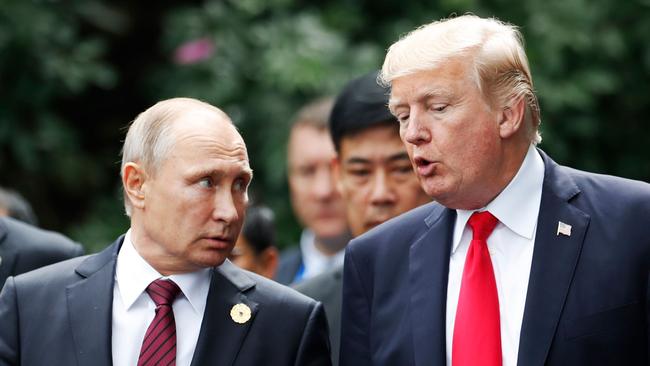The stunning importance of the Mueller indictment
More than just a political earthquake is being unleashed in indictment against Russians for interfering in 2016 Presidential election.

Naturally enough all the focus on last week’s US indictment against 13 Russians for interfering in the 2016 Presidential election has been on whether the trail leads to an impeachable offence by President Trump.
Not yet it doesn’t, but special counsel Robert Mueller’s posse appears to be closing in.
But as big a deal as that is for America and the world, there is more to what Mueller is uncovering than a potential political earthquake.
The 37-page indictment against Yevgeniy Viktorovich Prigozhin et al should be required reading for every government in the world, in fact every company, and organisation of any sort, for that matter.
The description of how a company in St Petersburg used Facebook to produce an astonishingly powerful impact in the United States is a manual for anyone who wants to use social media for nefarious purposes, as well as a useful guide for those who need to defend against it.
The stunning thing is not so much how sophisticated and well-planned the operation was, although it was certainly that. It’s that it was easy, and apparently inexpensive.
It’s true that the operation appears to have had the resources of the Russian Government behind it, but any large company or well-funded NGO, or criminal gang or bunch of jihadists for that matter, probably could have done the same thing.
It was run out of a company called the Internet Research Agency in St Petersburg and apparently had about 1000 people working there at its peak, which is really not that many to change the course of American history.
They didn’t only use Facebook, but it was the main vehicle. They bought ads to directly influence opinion, set up actual rallies, mostly in favour of Trump and against Hillary Clinton, and set up ginger groups and fake organisations.
They disguised their activity in three ways, according to the indictment.
First, it was all done through virtual private networks (VPNs) established on US-based servers.
“To hide their Russian identities and ORGANIZATION affiliation, Defendants and their co-conspirators … purchased space on computer servers located inside the United States in order to set up virtual private networks (“VPNs”). Defendants and their co-conspirators connected from Russia to the U.S.-based infrastructure by way of these VPNs and conducted activity inside the United States — including accessing online social media accounts, opening new accounts, and communicating with real U.S. persons — while masking the Russian origin and control of the activity”.
Simple, and cheap.
Second, they used stolen identities to buy advertisements: “In or around 2016, Defendants and their co-conspirators also used, possessed, and transferred, without lawful authority, the social security numbers and dates of birth of real U.S. persons without those persons’ knowledge or consent. Using these means of identification, Defendants and their co-conspirators opened accounts at PayPal, a digital payment service provider; created false means of identification, including fake drivers’ licenses; and posted on ORGANIZATION-controlled social media accounts using the identities of these U.S. victims”.
That’s a bit harder, but clearly not too taxing.
And third, they set up hundreds of fake email accounts, posing as Americans. Not too hard at all.
Some of the reaction to this, especially in the media, has focused on the failings of Facebook and other social media platforms, suggesting that they should have identified the crooks and shut them down, but that’s missing the point.
It’s not social media that has made this possible, but the internet itself. Facebook is just a manifestation of it, as is Twitter, Instagram, YouTube and email.
It’s 25 years since that cartoon appeared in New Yorker with tagline: “on the internet no one knows you’re a dog”. Well nobody knows you’re a Russian either, and 1993 was a long time ago. A lot has happened on the internet since then.
Facebook is not named as a co-defendant in the Mueller indictment, not yet anyway, but it doesn’t come out of it with completely clean hands.
However the criticism of Facebook and social media generally is pointless. It’s inevitable that there are going to be large-scale content aggregators and platforms like Facebook on the internet — if not them, then something else — and they will never be in a position to do more than the most superficial filtering and checking of content.
This is a permanent change. What the Russians did in 2015-16, and the Mueller indictment has now exposed, is a marker of where we are at now — indeed, the hackers are probably well past that already.
In fact, the potential for “attack by social media”, which is the focus of last week’s indictment is probably the least of our concerns.
It’s clear that we are already in the age of cyber warfare: the next big war will start on the internet and likely continue there, with adversaries hacking into, and shutting down, vital infrastructure and banking, causing chaos and social disorder.
The Mueller indictment teaches us that they won’t need to fire a shot, and they probably won’t even need to spend much money.
Meanwhile the Australian Government is spending $50 billion on submarines.
Alan Kohler is Publisher of The Constant Investor


